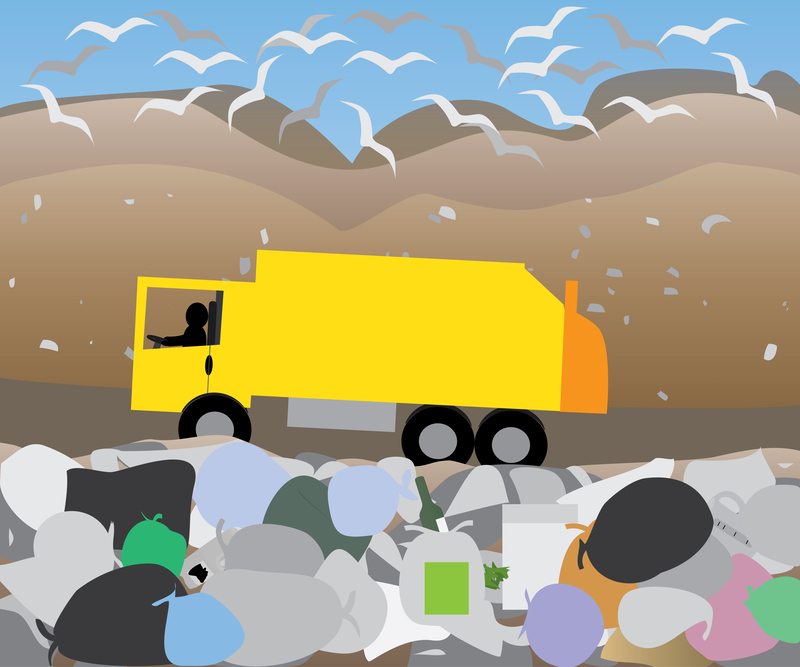Disposing Bulky Waste Items Without Breaking the Bank: A Complete Guide
Getting rid of large, unwanted items--from old furniture and broken appliances to construction debris--can be a headache. Many people find themselves overwhelmed by the prospect both logistically and financially. Fortunately, there are multiple cost-effective solutions for disposing bulky waste items without stretching your budget.
In this comprehensive guide, we'll explore the most affordable and practical methods to handle large waste, help you understand regulations, and provide tips to ensure eco-friendly disposal--all while saving money. Let's clear the clutter and keep your wallet happy.
Understanding Bulky Waste and Why Disposing Off It Matters
Bulky waste--or "large-item waste"--includes things that are too big or heavy for regular trash pickup. Examples include:
- Old sofas, mattresses, and beds
- Refrigerators, washing machines, and other large appliances
- Renovation or construction debris
- Outdoor equipment, such as grills and lawnmowers
Proper disposal of bulky items is essential for several reasons:
- Environmental Protection: Keeps hazardous materials out of landfills and waterways.
- Compliance: Avoids fines and penalties from improper dumping.
- Community Health: Prevents unsightly dumping and related health hazards.

Explore Your Options: Disposing Bulky Waste Without Overspending
1. Check Your Municipal Services
Many cities and towns offer some form of bulk item pickup services. This is often the most affordable option, as it's sometimes included in your standard garbage bill or offered for a nominal fee.
How to Use Local Bulk Pickup:- Visit your city or town's waste management website.
- Look for "bulky waste disposal", "large item pickup", or "special collections".
- Review the allowable items, dates, and fees (if any).
- Schedule your pickup in advance--slots can fill up!
Tip: If you're a senior citizen or qualify as low-income, some municipalities offer free or discounted bulky item disposal.
2. Bulky Waste Drop-Off Centers
If curbside collection isn't available or doesn't fit your schedule, research local drop-off facilities. These are specially designed to help residents dispose of large waste items at affordable rates or, sometimes, at no charge.
- Find locations by searching "bulky waste drop-off near me."
- Check for restrictions on vehicle types or item sizes.
- Certain items (e.g., electronics or hazardous materials) may require special attention.
Using a drop-off site eliminates the waiting period and ensures your items are handled properly.
3. Schedule a Community Clean-up Event
Many neighborhoods organize semi-annual or seasonal cleanup days. These are organized around yard waste, appliances, and other bulky items. Pooling resources and sharing disposal costs with your community is a cost-effective solution. Plus, you may even get to dispose of items for free.
- Watch for updates on your HOA bulletin boards, social media groups, or local newspapers.
- Contact your local public works department for upcoming events.
4. Donate or Give Away Usable Items
One person's trash is another's treasure! If your large item is still functional--like a couch, bookshelf, refrigerator, or bed frame--consider donating or giving it away instead of dumping it.
- Local Charities: Many will collect items for free.
- Organizations like Goodwill, Salvation Army, or Habitat for Humanity ReStore accept a broad range of bulky items.
- Online Marketplaces: Post on Facebook Marketplace, Craigslist, Freecycle, or local "Buy Nothing" groups.
- Saves disposal fees.
- Helps those in need.
- Keeps usable items out of landfills.
5. Junk Removal Companies: Choose Wisely
Junk removal services are convenient but can be costly if you're not careful. However, with some strategy, hiring a junk removal company need not break the bank.
Tips to Save:- Shop around for rates and reviews.
- Compare full-service removal vs. "load it yourself" dumpster rentals.
- Share the service with neighbors or friends to split costs.
- Look for first-time customer discounts and coupons on company websites or deal sites.
Did you know?: Some companies may offer reduced rates for residents, seniors, or veterans--don't hesitate to ask!
6. Recycle Bulky Waste Responsibly
Some large items can be recycled, ensuring eco-friendly disposal and sometimes eliminating fees entirely.
- Appliances: Check for local recycling initiatives. Some stores offer haul-away and recycling when you buy a replacement.
- Mattresses: Dedicated recycling facilities exist in many areas that break down mattresses into metal, foam, and fabric.
- Electronics: TVs, computers, and other e-waste have dedicated recycling programs that are often low-cost or free.
Always remove hazardous materials (like refrigerants from freezers) before recycling, as these require specialized disposal.
Other Smart Strategies for Cheap Bulky Waste Removal
Disassemble Before You Dispose
A large item can often be broken down into smaller, more manageable components. This can save you money by:
- Reducing the volume of material for disposal (and thus the fee).
- Allowing you to fit items into your regular garbage over several weeks (check your local rules).
- Making transport easier and potentially enabling re-use or recycling of individual parts.
Sell Bulky Waste
If your item retains some value, consider selling instead of trashing it. Even receiving a small amount can offset disposal costs.
- List on classifieds or marketplace apps.
- Hold a garage sale.
- Contact local thrift or consignment shops.
Make Use of Your Network
Ask friends, family, and colleagues if they need the item--or know someone who does. This technique is especially useful for quickly offloading furniture, fixtures, or yard equipment.
Bulk Waste Disposal: What NOT to Do
- Don't Dump Illegally: Illegal dumping can result in steep fines and environmental damage.
- Don't Ignore Local Rules: Many municipalities have specific rules about bulky item collection--follow them to avoid fines.
- Don't Mix Hazardous Waste: Always separate hazardous materials like paint, solvents, and batteries for proper processing.
- Don't Wait Too Long: Letting large waste accumulate can attract pests and become a safety hazard.
Hidden Fees and How to Avoid Them
When disposing bulky items, watch for unexpected expenses. Here's what to watch out for:
- Permit fees for certain items or loads
- Weight charges at drop-off sites
- Minimum pick-up amounts for junk haulers
- Special handling fees for electronics or hazardous materials
Always ask for a fee breakdown before booking a service, and check for free public disposal days or expiration dates on promotional offers.
Bulky Waste Disposal and the Environment
Choosing sustainable options for disposing of large waste helps preserve the environment. Here's how you can dispose of bulk items responsibly and affordably:
- Recycle--always choose recycling stations when possible.
- Donate or Reuse--give your items a second life and benefit someone in need.
- Avoid Landfills--minimize the amount of trash destined for landfill disposal.
Bonus tip: Many cities have "zero landfill" goals and may offer incentives for participation in recycling and donation programs. Ask your local waste authority for more information.

Frequently Asked Questions About Disposing Large Waste Items
What is considered a bulky waste item?
Bulky waste typically refers to items too large for standard trash bins--such as furniture, mattresses, appliances, and oversized electronics. Specific definitions may vary by municipality.
How much does bulky waste disposal usually cost?
Costs vary based on your location, the type of item, and the disposal method. Using municipal bulk pickup or drop-off sites is often the most cost-effective way to dispose of bulk trash, ranging from free to a modest fee (often $5-$60 per item). Private junk removal companies generally charge more, especially for specialty items or urgent pickups.
Can I put bulky waste out with regular trash?
In most areas, you should not place bulk items with regular trash. Check your city's rules for acceptable practices--improper disposal can result in fines and missed pickups.
Are there free bulk disposal options?
Yes! Many municipalities offer free bulky waste drop-off days, community clean-ups, or free curbside collection for certain items each year. Donating or giving away usable items is always free and often easier than dumping.
How can I move bulky items myself on a budget?
Rent a truck or borrow one from a friend. Consider disassembling larger pieces to reduce volume and weight. Always use proper lifting techniques to avoid injury--and consider teaming up with neighbors for group disposal trips.
Conclusion: Affordable and Responsible Bulky Waste Disposal Is Within Reach
Disposing of large waste items doesn't have to be expensive. By exploring all available options--municipal pickup, drop-off centers, donation, resale, and recycling--you can eliminate clutter, stay on budget, and do your part for the environment. Remember, always check your local regulations and take advantage of public programs before paying for private services.
Reduce, reuse, recycle--and save money while you clear out your space!
